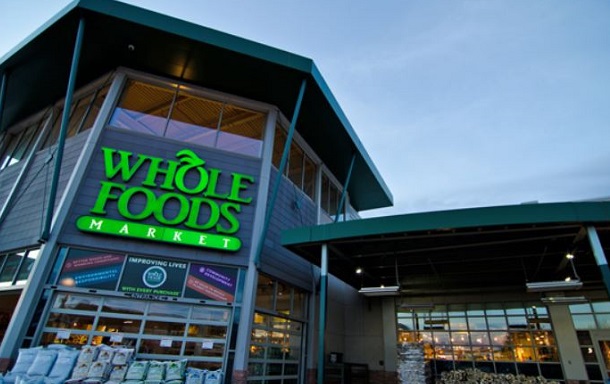 A Whole Foods store. Photo by Amazon.
A Whole Foods store. Photo by Amazon.
SEATTLE—The Wall Street Journal has reported that Amazon plans to launch dozens of grocery stores in several major US cities, citing sources familiar with the strategy.
The first store will open in Los Angeles, possibly by the end of this year, according to the WSJ. The company has also signed leases for two other locations with plans to open early in 2020. In addition, Amazon is in talks to open outlets in San Francisco, Seattle, Chicago, Washington, DC, and Philadelphia, according to the sources that spoke with the WSJ.
These stores will open under a different brand name than Whole Foods, which Amazon acquired in June 2017 and presumably will target a different shopper profile.
With this move Amazon is investing in one of the most stable types of retail. Grocery-anchored retail has maintained low cap rates and increasing prices this cycle, despite the upheaval among more traditional retailers. Indeed, just in the last several days, retailers have announced plans to close 300 stores, a number calculated by Bloomberg. The Gap has announced plans to close several of its stores while spinning off Old Navy to operate as a stand alone entity. J.C. Penney plans to close 18 department stores and Victoria's Secret will shutter 53 outlets.
“We've seen interest continue to increase due to the lack of available supply of high-quality grocery-anchored properties on the market,” Kirk Brummer, director at CBRE's national retail partners west group, told GlobeSt.com late last year. “High-performing grocery-anchored centers have been a staple in every real estate cycle—their ability to withstand economic downturns and to generate consistent cash flow growth.”
Institutional investors, in particular, appreciate that grocery-anchored retail centers have historically been the most secure retail investments as they consist of “daily needs” tenants who are more resilient to economic downturns and are more resistant to internet competition, Brummer added.
The grocery-store sector itself is undergoing change as consumer tastes turn to healthier fare and expansions of existing brands slow, leading to tighter supply of these assets. Still, a case can be made that the grocery-store sector is over-retailed—especially when you take into account the non-traditional stores that now sell food, such as the Dollar stores, the grab-and-go options at drugstores, and Target. Also, retailers such as Wal-Mart have been increasing the quality of their grocery store offerings, such as its organic produce. Where Amazon's new brand will fit in this mix remains an interesting question.
© Touchpoint Markets, All Rights Reserved. Request academic re-use from www.copyright.com. All other uses, submit a request to [email protected]. For more inforrmation visit Asset & Logo Licensing.







